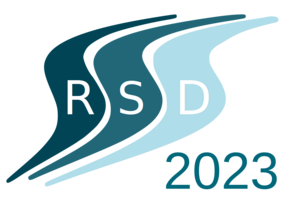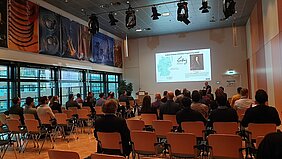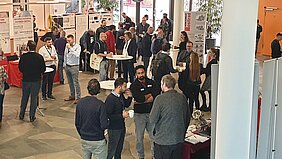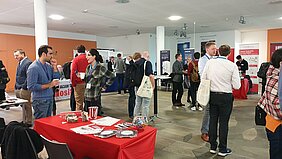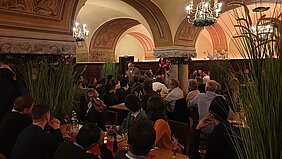The RSD was founded in 2000 by Prof Diederik Depla (University of Ghent) and has developed over time into an annual tradition that continues to grow without losing focus on reactive sputtering and its fundamental aspects. Since then, the conference has been held alternatingly in Ghent and other European cities.
This year, the RSD conference and accompanying trade exhibition took place from 12 to 13 December at the Leibniz Institute for Surface Engineering (IOM) in Leipzig. The continuation of the successful series of conferences on reactive sputter deposition has provided an excellent platform for years to discuss the latest trends and their implementation in new technologies and innovative products. Equipment, products and services from a large number of interesting companies were presented at the accompanying trade exhibition. The day before the conference, a workshop for students and young scientists on reactive sputter deposition was held, led by Prof. Diederik Depla, the "father" of RSD.
Sputter deposition has been one of the most important coating processes for decades and is one of the standard techniques with a wide range of applications in the industry. In addition, various specialty processes have been developed to enable a controlled influence on coating properties and to produce special materials as thin films on arbitrary substrates. While the focus of the conference was on the application of magnetron sputtering processes including HiPIMS, other methods such as the ion beam sputtering deposition established at the IOM were also presented. This year there were about 80 visitors, mainly from Europe but also from Korea and Japan. During the 2-day event, both fundamental aspects including modelling and the use of AI as well as various application areas were presented and discussed in lectures and poster presentations. The ever-growing conference brought together young and experienced scientists from various universities, research institutes and industry and enabled lively discussions on current and future scientific and technological results and challenges.

